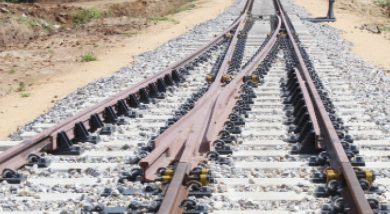Bad debts, others choke parastatals
Rising trade debtors and unfavourable market and operating environment continued to worsen the performance of parastatals in the 2018/19 financial year that ended on June 30, the 2019 Annual Economic Report indicates.
The report, produced by the Ministry of Finance, Economic Planning and Development, shows that the performance of most statutory corporations subdued in the year under review despite stabilisation of economic growth at four percent and inflation rate at 9.2 percent.

“Performance of most statutory bodies still remained subdued largely due to unfavourable market and operating environments for various products and services,” reads the report in part.
On monetary policy side, the report notes that although policy rates have been declining, financing remained unaffordable as the high interest rates continued to impact the level of new investments and also the level of indebtedness of the statutory bodies.
Reads the report: “Generally, these developments led to downward revisions of the anticipated turnover for most statutory bodies, thereby reducing their profitability during the financial year ending 30th June 2019.
“As at mid-year, the statutory bodies managed to generate less than half of the overall approved revenues while expenditures also followed similar trends. In terms of investments, most of the capital expenditure budget was not used, mostly because of cash flow challenges due to an increase in trade debtors.”
Economic analysts have called for the need for broad-based ownership of reformist approach in the parastatals and freeing the institutions from political interference.
In an interview, economist Dalitso Kubalasa said there is need for the reformist approach should be infused in the staff structure and management to deliver and make some of the parastatals competitive.
“This is, however, usually easier said than done due to impediments such as the political interference, corruption and mediocrity. If these were taken away, we couldn’t be talking about underperforming parastatals,” he said.
The report further says that the liquidity position for most parastatals worsened due to build-up of trade debtors, thereby eroding the working capital.
“This situation was mostly prevalent among the water boards and other trading parastatals. As a result, most parastatals resorted to obtaining bank overdrafts to cushion their cash flows. Other parastatals resorted to deferring payment of tax obligations, pensions and other trade payables. Borrowing among commercial parastatals also increased, leading to high gearing positions,” says the report.
During the period under review, Blantyre Water Board reported a K2.3 billion loss for 2018 largely attributed to non-revenue water; Southern Region Water Board registered a K241.8 million loss while Central Region Water Board made a K160.5 million loss.
However, the performance of Lilongwe Water Board (LWB) is said to have improved in profitability as it reported an after-tax profit of K4.9 billion. But LWB is still struggling with debtors who owe it over K15.2 billion.
Malawi Housing Corporation (MHC) is also reported to have improved its financial performance slightly in the year under review as revenue grew from K4 billion in 2016/17 to K5.1 billion in 2017/18 with an after-tax profit of K257 million.
But MHC, like LWB, has more debtors owing it a lot of money with public institutions that are occupying 85 percent of the corporations houses owing it the biggest chunk.
Electricity Generation Company (Egenco) maintained profitability with an after-tax profit at K17 billion. However, debt collection days deteriorated due to huge liabilities with Electricity Supply Commission of Malawi (Escom) owing the power generation company K34 billion.
Another struggling parastatal, Malawi Posts Corporation (MPC), is said to have incurred after-tax loss of K523 million. In the financial year 2016/17, MPC registered a K292.3 million loss and as at December 2018, it also posted an after-tax loss of K294.2 million.
According to the report, the poor performance has been attributed to the drop of revenue performance by seven percent at K4.2 billion in the year under review from K4.5 billion in 2016/17.
The poor performance is also attributed to MPC’s weak liquidity position which signified that the corporation has inadequate resources to meet its current debt obligation.
Kubalasa notes that in a country like Malawi where the majority of citizens are rural-based and largely disconnected from almost all essentials of life in today’s modern, digital and global village, MPC could actually choose to rise to the occasion by narrowing the disconnect.
He says a lot needs to happen beginning with MPC refining its strategic niche and proving its relevance, with focus, integrity, grit and determination.
Economics Association of Malawi (Ecama) president Chikumbutso Kalilombe said while they cannot give a detailed response on the problems MPC is facing, their general view on all parastatals in the country is the same that government should let parastatals work professionally and things will improve.
He said: “In general, all we can say is that government should ensure corporations are run professionally with meritocracy as the driving principle and avoid political or other unnecessary interference that are detrimental to performance.”
During a familiarisation tour in August, Minister of Information, Civic Education and Communications Technology Mark Botomani was told that the corporation was losing at least K500 million annually due to non-profitability of some of its post offices.
Post Master General Henry Shamu said the corporation has 180 post offices, of which only 30 are making profits and to broaden its revenue base, the institution was expanding its courier and transport business following the procurement of seven buses.
The World Bank is on record as having said that unless there is autonomy of utility bodies in the country, both the water and electricity sectors inefficiencies will continue creating a hidden fiscal burden.
According to the June Edition of the Malawi Economic Monitor by World Bank, the weak financial position of utilities bodies hinders their ability to expand access and to ensure reliable service delivery but cannot do much because most of their debtors are government agencies and departments.





